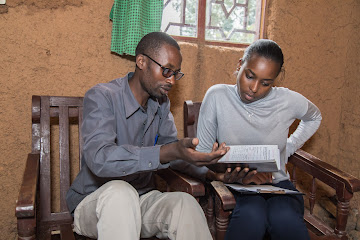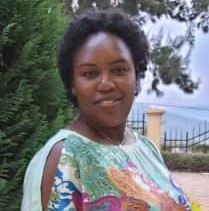For the socioeconomically underserved people of Rwanda, an illness as commonplace as strep throat can lead to life-altering heart disease if left untreated. By implementing programs that increase access to rheumatic heart disease screening, prevention, education, and surgical intervention, Team Heart has impacted the lives of thousands of individuals in this disadvantaged nation.
With only four cardiologists available to treat the 12 million citizens of Rwanda, Team Heart has recognized a tremendous gap in accessible cardiac care. To close this gap, volunteers have been working tirelessly to develop a program that will prepare dozens of the nation’s nurses to provide specialized cardiac care to those in need. The Cardiac Nurse Specialist program aims to increase nurses’ understanding of cardiac disease processes, diagnostic tests, laboratory values, and medication management. Team Heart, the Rwandan Ministry of Health, and the University of Rwanda School of Nursing and Midwifery are working collaboratively to expand access to cardiac care beyond large urban medical centers by preparing nurses for this advanced practice role.
Leslie Kaze
Leslie is the country director for Team Heart and has been a member of the volunteer services team since 2018. She graduated from the University of Rochester in 2018 with a Bachelor’s Degree in Public Health and a minor in health policy. Leslie originally wanted to enroll in medical school, but after learning about the disparity of healthcare availability in marginalized communities worldwide, she found her true passion in public health.
By establishing relationships with key government stakeholders, Leslie has managed to clarify Team Heart’s mission and increase communication with valuable members of the Ministry of Health and other governing bodies. Her efforts have impacted hundreds of lives, most notably during the COVID-19 pandemic. Leslie ensured the care needs of over 200 cardiac patients were met during lockdown by organizing monthly check-in calls and transportation services to-and-from critical medical appointments. When asked about the impact of the pandemic on patient care, Leslie stated, “surprisingly, the lockdown allowed us to perform consistent compliance tracking and data collection for the first time. We actually saw an improvement in warfarin management and compliance.”
Leslie’s role as program coordinator for the Cardiac Nurse Specialist program has allowed Team Heart to gain support from hospital directors, cardiologists, and educators from the University of Rwanda School of Nursing. Her contribution has ensured all necessary steps have been taken for the Cardiac Nurse Specialist program to be legitimate and recognized in the healthcare community. Leslie’s continued effort will allow program graduates to provide skilled cardiac care to the underserved communities in Rwanda.
Leslie wants to encourage anybody interested in Team Heart to inquire about volunteering. “Public health is multidisciplinary. No matter what field you are coming from, your skills can be used [to help others].”
Dr. Madeleine Mukeshimana
Dr. Madeleine Mukeshimana is the dean of the School of Nursing and Midwifery at the University of Rwanda. Her nursing career began in 2006 after receiving an advanced diploma in mental health nursing and has been working in nursing education for 15 years. Dr. Mukeshimana has continued to pursue advanced education and now holds a Ph.D. in community health nursing, focusing on non-communicable cardiac disease research. Dr. Mukeshimana is passionate about her career but chuckled when asked why she chose nursing as her profession nearly twenty years ago. “I really liked the white coats! I wanted to be one of the people in the hospital wearing a white coat, helping people manage their diseases and caring for them. Because I am a woman, I was told I should be a nurse.” Dr. Mukeshimana continued by explaining the moment she realized nursing was her calling. “When I was in school, it was the first time I was able to assist a mother give birth. I remember thinking, ‘this is noble; this is something beyond my thinking.’ So, now I am here, a very professional nurse!”
Dr. Mukeshimana began working with Team Heart in March of 2021. She states, “I was so excited when Team Heart reached out to me about the Cardiac Specialist Program. Currently, we do not have nurses who specialize in cardiac care, and we need nurses. So we are working on starting this program.” Dr. Mukeshimana and a small team of cardiac experts and educators have been working collaboratively to develop a syllabus for the Cardiac Specialist program, write the modules, and format the materials in a way that is consistent with the University of Rwanda’s educational model. Dr. Mukeshimana repeatedly praises the staff at Team Heart for their excellent communication and dedication to the program.
As a nurse and citizen of Rwanda, Dr. Mukeshimana knows firsthand the severity of healthcare disparity in her country. “There is a greater need for this program than people may think. If a patient comes to the hospital for cardiac surgery, they might wake up without a nurse to take care of them.” Dr. Mukeshimana is grateful to have such a dedicated group of volunteers willing to help her community find long-term solutions to the care shortage in Rwanda. She dreams that someday the Cardiac Nurse Specialist program will grow into a master’s degree program offered at the University of Rwanda.
Dr. Maria Kidner, APRN, DNP
Dr. Kidner is an advanced practice nurse with over 30 years of experience in healthcare and holds a Doctorate in Nursing Practice. Her nursing career began in 1987 in labor and delivery, and she has since worked in various specialties including primary care, emergency medicine, and cardiology. Since 2004, she has participated in multiple international mission trips to educate nurses on clinical and leadership skills. Dr. Kidner states, “[b]edside nurses tend not to recognize their importance as leaders. They don’t recognize how important they are to the patient-nurse diad or how that diad can impact the community based on what the nurse teaches and how they provide care.” To address this discrepancy in nurses’ self-concept, Dr. Kidner developed the LEAP Leadership program. She now provides leadership training to nurses and other department heads in Rwanda. Dr. Kidner believes “it is everybody’s responsibility to help another person become their best.”
During her time in Rwanda, Dr. Kidner crossed paths with Ceeya Patton-Bolman, the director of Team Heart, and was invited to join the organization and continue providing education to the nurses of Rwanda. Her most recent project has been developing the educational materials for Team Heart’s Cardiac Nurse Specialist program.
As a native English speaker, Dr. Kidner has found the language barrier between her and the nurses of Rwanda to be a significant hurdle in the development of course materials. She is developing a highly technical program that will build effective teamwork skills while also accommodating students who speak English as a second, third, or even fourth language. “It is my goal to develop a manual for [nurses] written in an English pattern they can easily understand, with lots of pictures and diagrams, that is detailed enough [to provide] a significant and stable background in pathophysiology and anatomy and physiology.”
Dr. Kidner’s course materials and lectures are based on the American College of Cardiology’s clinical competency guidelines for advanced practice providers, putting graduates of the Cardiac Nurse Specialist program on par with advanced practice nurses in the United States. “I see this role as an opportunity to help nurses realize how important they are in providing team care, and to provide a process in which nurses can perform advanced practice skills in a setting that is creative and highly needed. They can be a beacon and a role model for other nurses.”
Dr. Kidner recognizes the need for creative teaching strategies to transform learning into knowledge. Each student will be provided a comprehensive workbook for each module which can be used as reference material in clinical practice. She also plans to integrate interactive lessons and games into her teaching plan to enhance comprehension and recall in the clinical setting.
Dr. Kidner is incredibly passionate about educating the nurses of Rwanda, and she recognizes that her efforts will make a long-term impact on the community. “It is such an amazing project. It’s going to take years to really see the fruit of our work, but if we don’t start, it will never happen.”


